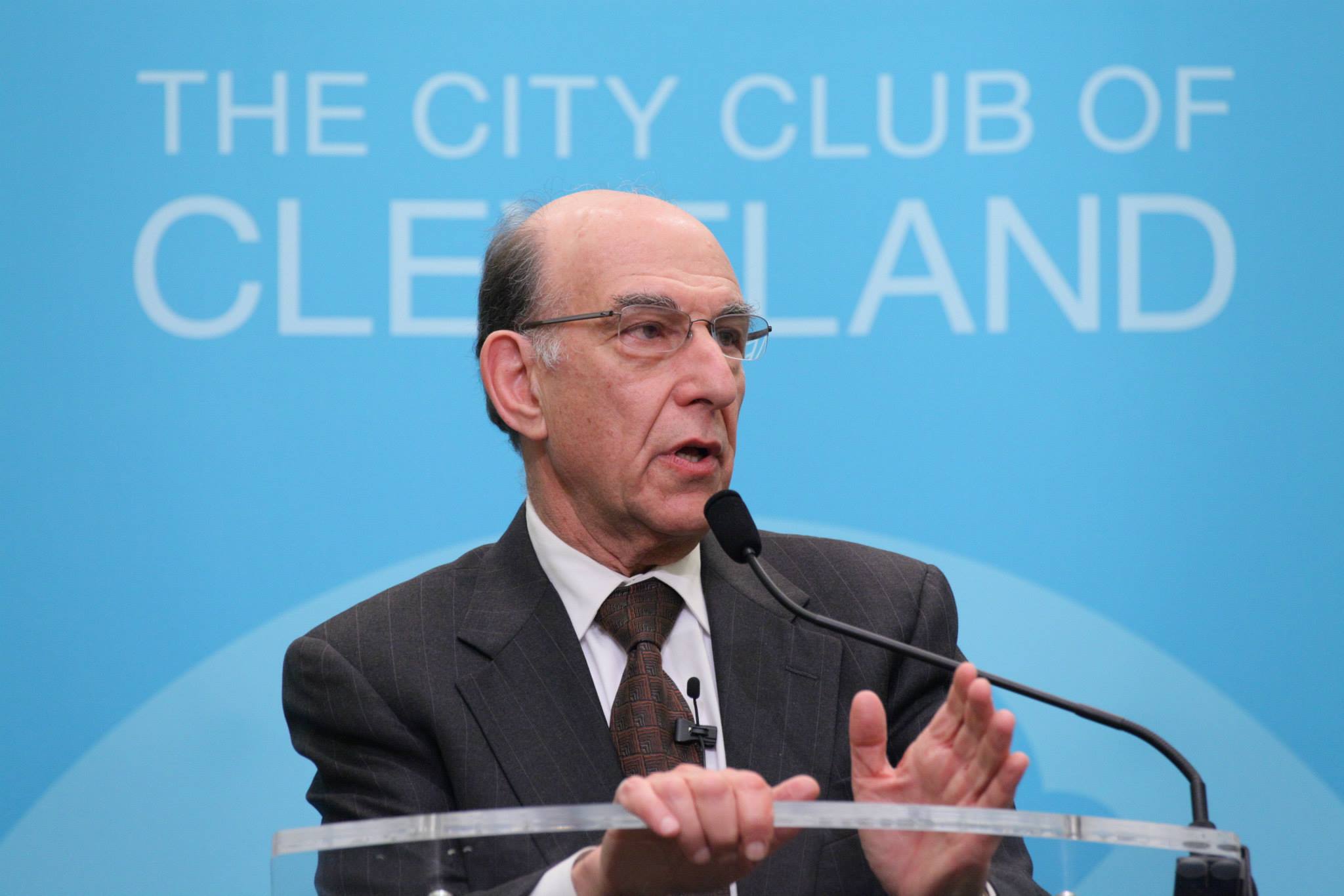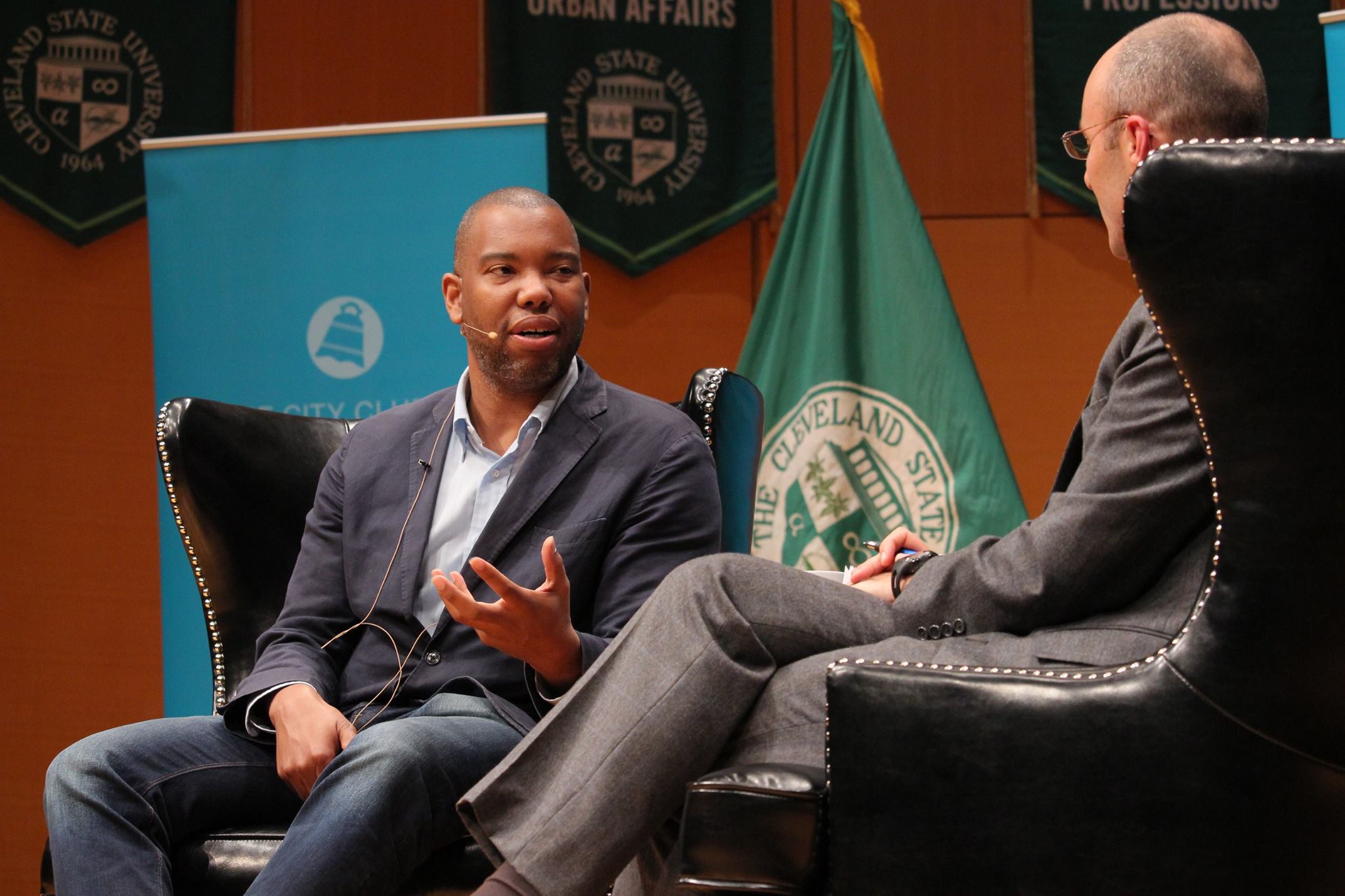In a popular U.S. high school history textbook, The Americans, there is only one sentence—in passive voice—on housing discrimination among more than 1200 pages of text: “African-Americans found themselves forced into segregated neighborhoods.”
So noted researcher Richard Rothstein, who cited this fact as an exemplar of American “collective amnesia” when it comes to how we discuss segregation. Such disingenuousness, he told the City Club of Cleveland, keeps our nation from righting past wrongs.
In October, the Economic Policy Institute published Rothstein’s latest scholarship: “The Making of Ferguson: Public Policy at Root of its Troubles.” This work, praised for its incisive analysis by Ta-Nehisi Coates, synthesized the cumulative effects of decades of discriminatory policies on black citizens in the St. Louis, Missouri region.
With minimal use of his notes, Rothstein drew a precise and powerful link between the current achievement gap among the races and our country’s legacy of inequality. “We do not have de facto segregation in this country,” he maintained, to murmurs of agreement in the audience. “We have explicit racial apartheid and we have forgotten the history of how this came about.”
Rothstein devoted the bulk of his City Club presentation to revisiting this history, beginning with the public policies in the 1940s that restricted black families to crowded public housing units and prevented black veterans from taking full advantage of the housing benefits in the G.I. Bill after World War II. Those national policy decisions stripped black families of the opportunity to generate the generational wealth enjoyed by whites.
Levittown, a Long Island, N.Y. suburb that boomed in the 1940s, makes a poignant example. Rothstein estimates that white homeowners who purchased their residences in the 1950s saw a 200% increase in equity in the following decades, which often sent children to college or enhanced businesses.
Simply outlawing discrimination doesn’t remedy years of injury, Rothstein argued, particularly as the effect of housing inequity still plagues American schools today: “We have a constitutional obligation to undo this history. It was not an accident. It was created under public policy. We have an obligation to reverse it.”
Rothstein also recommends reforms in the labor market, including the end of unpredictable scheduling for many low-wage occupations, overwhelmingly held by parents of color. Fifty percent of all black hourly workers receive their weekly schedules less than one week in advance, he noted, making it difficult to find consistent childcare or set mealtimes. “Giving parents stable work lives would do more to close the achievement gap than any education reform we can talk about.”
Questions from the audience were measured, including two from local high school students. Anthony Price from Shaw High School asked if Rothstein had suggestions for young people in eradicating inequality, in light of a recent City Club forum that placed youth at the center of the conversation, which he moderated. Rothstein circled back to his textbook example. “Educate yourselves about this history and insist that it become part of the curriculum,” he said to applause.
Will Congress or the Supreme Court address modern segregation? Rothstein insisted on the long view: “It’s going to take a long process of reeducating the American public. The Supreme Court is not going to go where we fear to go.”



